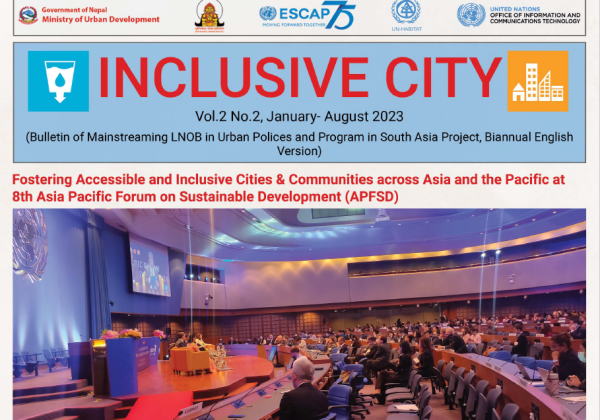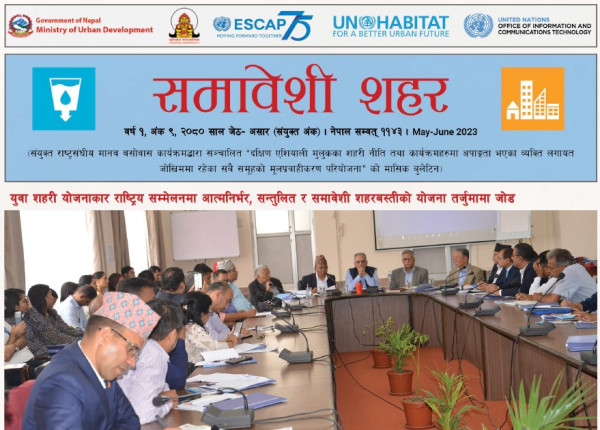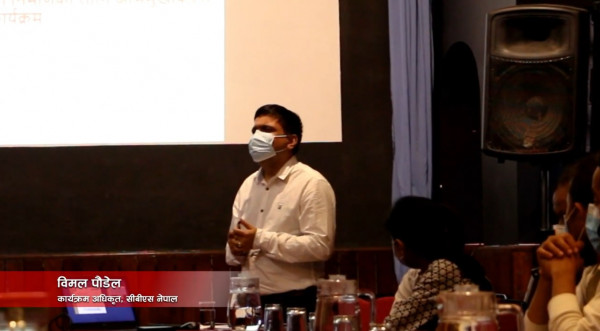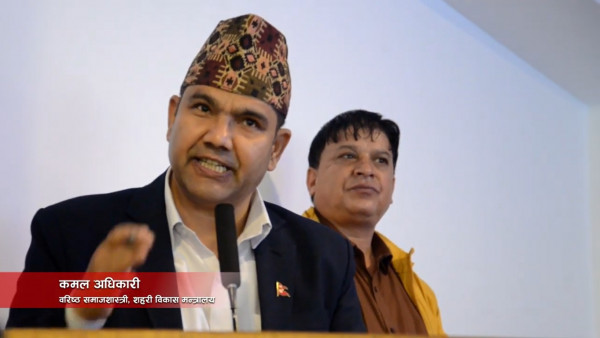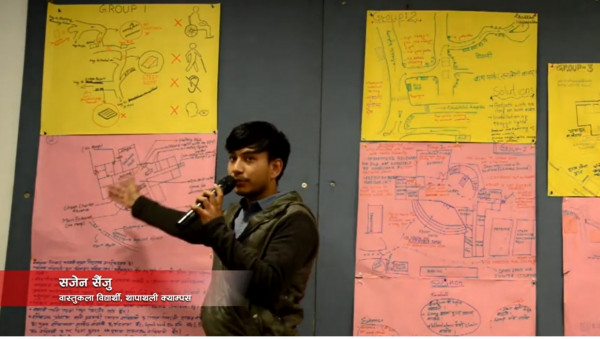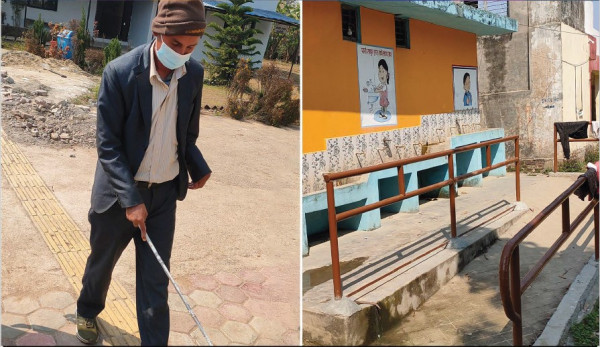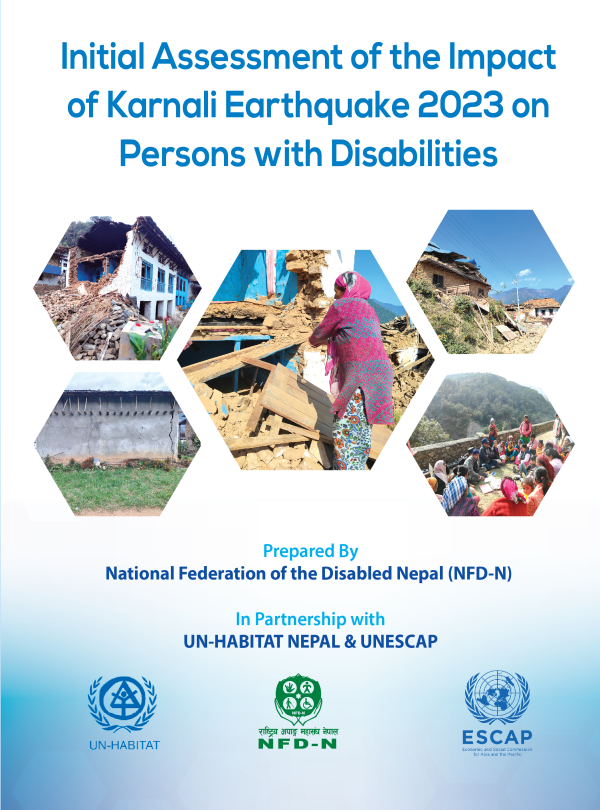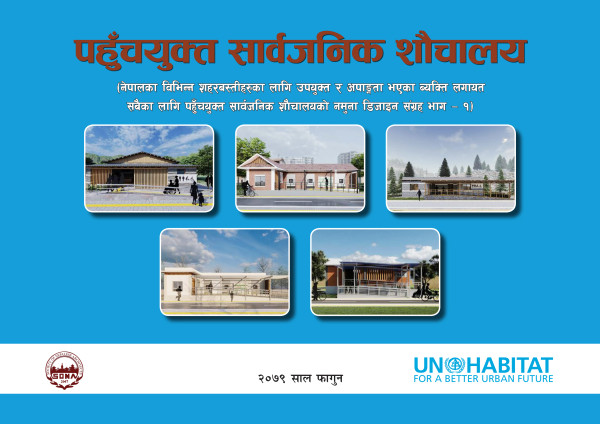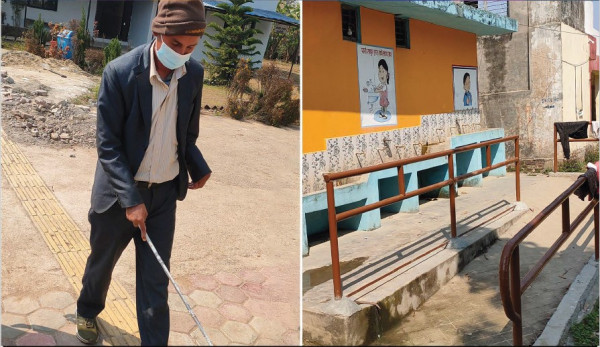
LNOB (Leaving No One Behind)
Mainstreaming LNOB in National Urban Policies and Programs (SDG 6 & 11) in South Asia
Duration: January 2020 – December 2023
Target Countries: Bangladesh, India, Sri Lanka, Nepal
Executing Entitles: UN-Habitat, ESCAP and UN-OICT
Co-operating Entities within the UN Secretariat and System: UNRCO, UNCT and UNAMA
Brief Introduction
The ongoing urbanization in South Asian countries needs steering and guidance to ensure no one is left behind in reaping the benefits of growth. For this, the urban policies, planning and development projects must be designed to cater to the needs of the vulnerable and marginalized, including persons with disability. To understand the needs of marginalized groups, strengthening capacities of government entities in data and assessment mechanisms is essential. Through this project, the inclusion of persons with disabilities and other marginalised groups will be strengthened in fundamental sectors of urban development, under SDG 11 – Sustainable Cities and Communities for integrated urban development and a SDG 6 – Clean Water and Sanitation, which gives impetus to an important sectoral challenge in South Asia countries. The national and local governments in the region need capacity support for innovative, integrated, evidence-based urban policy and planning.
The project draws on the collective expertise of UN-Habitat, UNESCAP and UN-OICT to use the convening power for addressing the complex, cross-sectoral challenges facing South Asian urban policy makers aiming to mainstream inclusive, safe concepts into urban policy and planning frameworks by engaging national, sub-national and local governments. To this end, a regional knowledge partnership forum will be established to develop innovative policy toolkits, best-practice approaches, collect urban data and conduct city analyses. Existing partnerships will be used to enhance linkages with national and subnational government entities to ensure that knowledge translates into tangible urban policy action. In this way, the project’s planned result to introduce innovative normative concepts on safety, inclusiveness and access into urban policies and planning frameworks will provide crucial support to governments, enabling greater access to disabled residents, and leave no one behind (LNOB).
Project Description
Objective:
To strengthen national governments and local urban institutions to center LNOB (inclusion, disability, and safety) in national policies, and facilitate evidence-based localization of national policies and SDGs 11 & 6 in urban areas.
Outcomes:
Strengthened regional network of governments and local urban institutions to promote and mainstream LNOB in urban development agenda, specifically SDGs 11 & 6.
Improved enabling environment within countries to align national policies and instruments to meet LN0OB goals with focus on safety, inclusiveness, and access for the disabled in SDGs 11 & 6.
Self-sustainable local government capacity for stronger vertical integration and reiterative feedback loop to national policies/frameworks through evidence-based monitoring of impact at local level.
Targeted Activities
Knowledge products and E-learning modules used on existing SDG Helpdesk to engage multi-level stakeholder network is active and maintained to disseminate best-practices, toolkits and other relevant policy materials and data to country-level stakeholders
National urban policies/frameworks (through consultative process) are strengthened to mainstream LNOB objectives with focus on safety, inclusiveness and access for the disabled in SDGs 11 & 6
Sensitization followed by capacity building of the national and sub-national government and stakeholders on the LNOB framework with focus on safety, inclusiveness and access for the disabled in national policies and SDGs 11 & 6
Wider outreach through dissemination of various IEC materials and e-learning module on physical and digital accessibility
Developed or improved online dashboard for data collection, and MRV toolkit for LNOB reporting with toolkits and manuals focusing on safety, inclusiveness and access for the disabled in urban policies with focus on SDGs 11 & 6
Urban local bodies capacitated in using online dashboard and toolkits for MRV and knowledge on LNOB in their respective cities
Urban local bodies capacitated to conduct accessibility audit of public services and infrastructure, to undertake necessary interventions with budgetary allocations for improving accessibility to services for the people with disability
Targets Group in Nepal
Various CSOs (Civil society organizations), NGOs (Non-Government Organizations), OPDs (Organization of persons with disabilities) and experts in the field of disability inclusion.
Academia, Engineers, Urban Planners, Architects and IT experts.
Ministry of Urban Development (MOUD) and Dhulikhel Municipality (Local Government).
Forum, network or federation working in the field of disability inclusion and vulnerable communities (women, children and senior citizens)
Executive Entitles:
